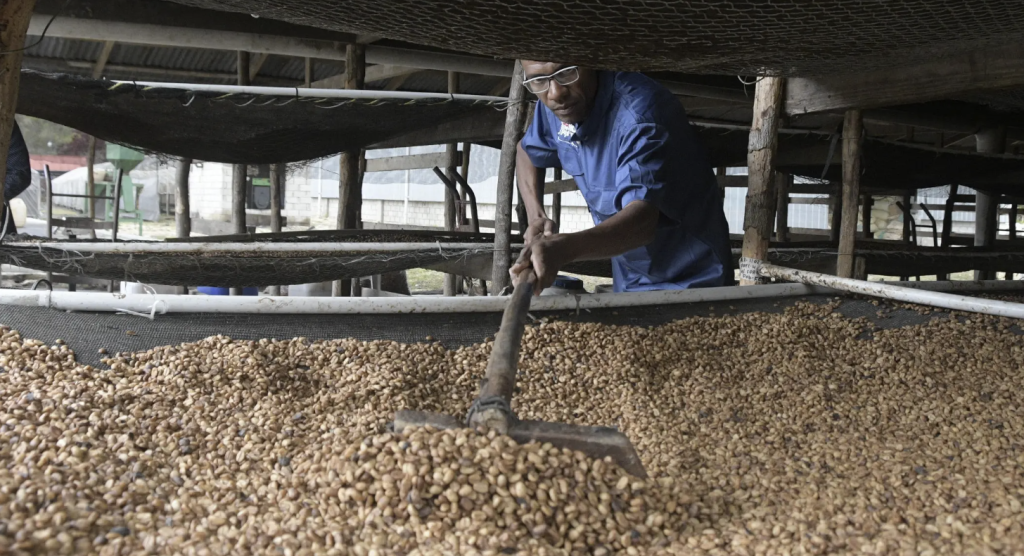
With productivity low, in part due to climate change, several local companies are going up market and dedicating their farms to produce specialty coffee. The coffee beans for special coffees require an indoor drying process to give the final product a better flavor and quality.
Barahona farm manager Cesar Ros Guinot told El Dia reporter that more than 2,500 quintals of coffee are produced annually for special coffee markets at the farm in Polo, Barahona. Polo coffee has passed the rigorous Japanese quality assessment. Ros Guinot exports the specialty Geisha coffee to the exclusive Japanese market. Geisha coffee is a variety that is resistant to coffee rust and has a value of US$1,500 per quintal.
Ros Guinot says that the Polo’s Geisha coffee passed the quality evaluation protocol with tests of aroma and fragrance, flavor, acidity, body and other special properties for the enjoyment of a good coffee.
“We are exporting between 2,000 and 2,500 quintals per year of a special coffee, the mieldulo”, said Ros Guinot, indicating that it has a drying process under shade for 30 days until it is transformed into exportable coffee. It remains another 90 days in a special cover before it is ready for export.
The coffee farms are located in Polo that is more than 1,300 meters above sea level. Day after day, dozens of men go into the mountains to meticulously maintain the coffee plantation.
El Dia reports that the quality and high productivity of the coffee plant depends, to a great extent, on where it is planted. Shade and fertilizer are monitored constantly and development can take up to four years.
Ros explains that the decision to go up market to specialty coffees came after he noticed that the coffee plants presented productive stress after four years, due to the effects of climate change. The plants showed a lot of flowering, but little ripening. “This led us to innovate and introduce a differentiated product for global markets,” he said. He explained that coffee that is produced in only one season and in low quantity creates expectations in consumers and can be sold at a higher price.
El Dia reports that according to data from Market Intelligence of the Center for Export and Investment of the Dominican Republic (ProDominicana), there are some 193 companies exporting coffee and coffee substitutes in the country.
Last year alone, 128,743.81 quintals of coffee were exported, yielding US$27,395,878.36, according to the export statistics of the Dominican Coffee Institute.
Exports were 95,600 quintals more than in 2021. Already for this year US$11,606,650 has been exported from more than 47 thousand quintals of coffee sold between January-February 2023.
Read more in Spanish:
El Dia
8 March 2023

